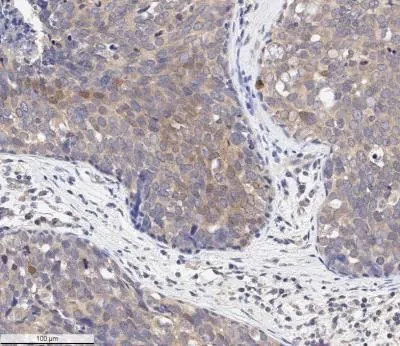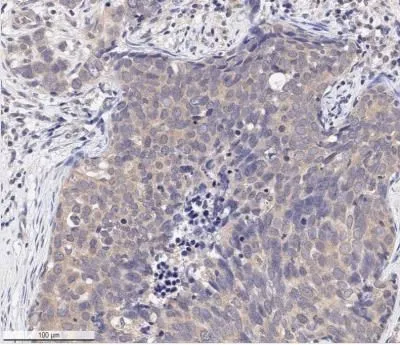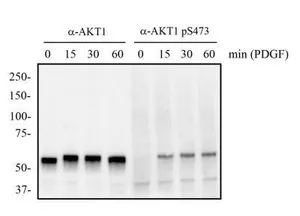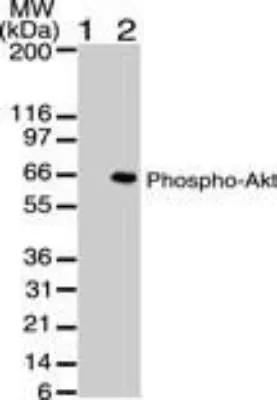
GTX11901 IHC-P Image
AKT (phospho Ser473) antibody [104A282] - Orthogonal Validated

GTX11901
ApplicationsImmunoFluorescence, Western Blot, ImmunoCytoChemistry, ImmunoHistoChemistry, ImmunoHistoChemistry Paraffin
Product group Antibodies
ReactivityChicken, Human, Mouse, Zebra Fish
Overview
- SupplierGeneTex
- Product NameAKT (phospho Ser473) antibody [104A282] - Orthogonal Validated
- Delivery Days Customer10
- ApplicationsImmunoFluorescence, Western Blot, ImmunoCytoChemistry, ImmunoHistoChemistry, ImmunoHistoChemistry Paraffin
- CertificationResearch Use Only
- ClonalityMonoclonal
- Clone ID104A282
- Concentration1 mg/ml
- HostMouse
- IsotypeIgG
- Modification TypePhosphorylated
- Scientific DescriptionThe serine-threonine protein kinase encoded by the AKT1 gene is catalytically inactive in serum-starved primary and immortalized fibroblasts. AKT1 and the related AKT2 are activated by platelet-derived growth factor. The activation is rapid and specific, and it is abrogated by mutations in the pleckstrin homology domain of AKT1. It was shown that the activation occurs through phosphatidylinositol 3-kinase. In the developing nervous system AKT is a critical mediator of growth factor-induced neuronal survival. Survival factors can suppress apoptosis in a transcription-independent manner by activating the serine/threonine kinase AKT1, which then phosphorylates and inactivates components of the apoptotic machinery. Multiple alternatively spliced transcript variants have been found for this gene. [provided by RefSeq]
- ReactivityChicken, Human, Mouse, Zebra Fish
- Storage Instruction2°C to 8°C,-20°C
- UNSPSC12352203
References
- Silencing of caspase-8 and caspase-3 by RNA interference prevents vascular endothelial cell injury in mice with endotoxic shock. Matsuda N et al., 2007 Oct 1, Cardiovasc ResRead more
- The synthetic flavonoid WYC02-9 inhibits cervical cancer cell migration/invasion and angiogenesis via MAPK14 signaling. Chen YJ et al., 2013 Dec, Gynecol OncolRead more



